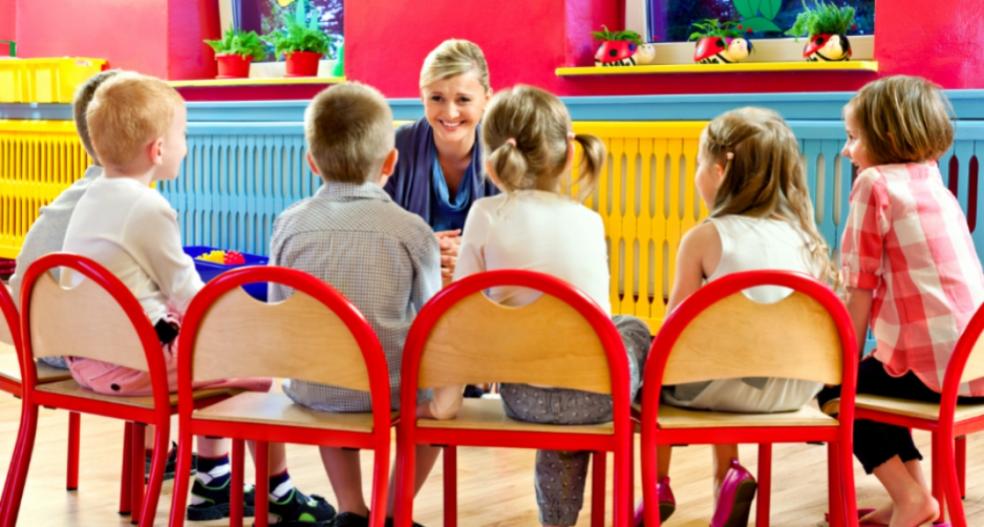
Nurseries reject plan to relax ratios and warn it won’t lower childcare costs
Around nine in 10 nurseries and pre-schools in England are opposed to government plans to relax childcare ratios, with just 2% indicating that changes to ratio rules would result in them lowering fees for parents, a new survey conducted by leading early years organisation the Early Years Alliance has revealed.
Children and families minister Will Quince has confirmed that the government will be consulting on changing current early years regulations so that settings can operate under a ratio of one adult per five two-year-olds, up from the current limit of four.
The online survey over 9,000 early years settings in England was carried out between 28 April and 4 May. While this was before the official announcement of the government’s plans to relax ratios for two-year-olds, the survey stated that “it has been suggested in media reports that the maximum number of two-year-olds per adult in nurseries and pre-schools could increase from four to five”.
The survey found that 87% of nurseries and pre-schools (which accounted for around three-quarters of survey respondents) are opposed to the principle of relaxing ratios, with 80% describing themselves as ‘strongly opposed’.
If the government does relax early years ratios, only 13% of nurseries and pre-schools would regularly or permanently use the new ratios, with the same small percentage predicting that they would enjoy moderate or significant financial benefits from ratios changes. Fewer still – just 2% of all nursery and pre-school respondents – say that ratio rule changes would result in a reduction in childcare fees at their setting.
Childminder survey respondents, who accounted for the other quarter of responses, were equally unlikely to expect ratio rule changes to result in lower fees for parents, with just 2% of all childminder respondents expecting this to be the case, despite being less strongly opposed to potential changes overall (56% in opposition vs 31% support).
The survey also found that:
- 87% of nurseries and pre-school respondents and 54% of childminder respondents think that operating to looser ratios would have a negative impact on quality at their setting.
- 89% of nursery and pre-school respondents and 58% of childminder respondents think that operating to looser ratios would have a negative impact on staff and/or their own mental health wellbeing.
- Of those respondents working in nursery and pre-schools settings who would not be responsible for any ratio change decisions, a huge 75% said that they would be likely to leave their current setting if ratios were relaxed there.
Government plans to consider relaxing ratios come despite warnings from Ofsted that children in the early years need extra support to help mitigate the impact of the pandemic.
A number of children, family and parenting organisations, as well as unions, have voiced their opposition to any ratio relaxation, including Millie’s Trust, Children England, What about the Children?, Coram Family and Childcare, Child Action Poverty Group, Family Action, Gingerbread, Women’s Budget Group, Working Families, Unison, NASUWT and NAHT.
A snap poll from parenting group Pregnant then Screwed of 17,000 parents, conducted via Instagram also found that 85% of parents would be opposed to plans to relax ratios, even if their costs were lowered as a result.
A government e-petition against any changes has so far reached over 59,000 signatures.
Commenting, Neil Leitch, CEO of the Early Years Alliance, said:
“Our survey results show that if the government does push ahead with any plans to relax ratios, most settings won’t change their ratios, even fewer would do it regularly, fewer still would save any money from it and hardly any would reduce parent fees as a result – so what exactly is the point of this policy?
“All it will mean is that at the minority of settings that might relax ratios, staff will be even more overworked and overstretched than they are already and children will receive less individual care and support at a time when they need it more than ever, without any difference being made to childcare costs.
“The Prime Minister himself has said that investment in the early years is absolutely crucial because the first few years of a child’s life are so vital – so how on earth can a policy that prioritises cost-cutting over children’s wellbeing and early development ever be justified?
“For years, the government has been knowingly underfunding the early years sector, fully aware that this would result in higher costs for parents – and now it is asking those very same parents to accept childcare delivered on the cheap simply because ministers are not willing to invest in making quality care and early education affordable.
“It is simply not good enough: not for our children, not for parents and not for a sector for early years professionals who all deserve better. We urge the government to abandon this lame duck of a policy before any more time is wasted on it.”
Joeli Brearley, CEO and founder of Pregnant Then Screwed, said:
“Our research with 17,000 parents found that 85% do not want the Government to change the ratios even if it would save them money.
“This is a deeply unpopular proposal with both parents and providers alike and it would not achieve any of its aims. Parents want to know their children are safe and properly cared for - that is far more important to them than saving a couple of pounds.
“We would love to see a minister spend the day with four children under the age of two-years-old – then they would see what hard work really is.”
Joanne Thompson, co-founder of Millie’s Trust and the mother of Millie Thompson, who died after a choking incident at her nursery in 2012, said:
“We are deeply saddened that the government are proposing changes to ratios in childcare settings especially when we have had previous support from the government to ensure childcare settings are safer.
“As parents who have lost a child in a choking accident in nursery when our daughter Millie was nine months old, we strongly oppose these suggestions for the safety of other children and in support of the mental health of current childcare workers who are already under immense pressure when looking after children on a daily basis.”
Lewis Steeper, husband of Zoe Steeper who started the current government e-petition opposing ratios changes, and father of Oliver Steeper, who died after an incident at a nursery in September, said:
"After losing Oliver in an early years setting, we feel it's our duty now to protect other children from people who are trying to overhaul the sector. These are members of parliament who will never put their own children into a local nursery/childminder because of their wealth and privileges; who simply don't live in the real world the rest of us do and don't bat an eyelid at the cost of childcare.
"There would be no guarantee if for whatever reason the changes did go ahead that by losing/sacking staff members to save money, any savings would be passed along to parents anyway. Many early years staff are underpaid, overworked and anymore cuts would simply push them beyond breaking point.
PROVIDER CASE STUDIES
Amanda Trafford, a former under-twos room leader in Farnborough, Hampshire, said: “I have recently just decided to leave the early years world, even though I've just done my degree. The workload for an early years practitioner now is overwhelming and very stressful physically and mentally, and you don't get the recognition for it, both in pay and acknowledgement.
“Increasing ratios is going to make this 10 times worse. This will increase safety and safeguarding issues all over the country. Practitioners are already leaving for being over worked and underpaid – this will see a big increase of people leaving and nurseries closing due to not having staff.
Nicola Facey, nursery owner and manager at Ninny's House in Andover, Hampshire, said: “Increasing the number of children who can be looked after per member of staff is NOT the answer to improving early years' childcare provision in England.
“This will not reduce costs for parents; it will lead to poor quality provision, the dumbing down of a sector who are already poorly regarded and, most essentially, a total lack of quality input for the youngest and most vulnerable children in our society.”
Jody Ewen, early years teacher and teaching and curriculum lead at Molly's Pre-School in Longfield, Kent, said: "The early years sector is already under immense pressure. Unprecedented levels of special and additional needs – mostly speech and language – mean that at the ratios we are currently operating, practitioners are already drowning.
“Reducing ratios would primarily be a health and safety concern, but it would likely also cause a mass walk-out in an industry where it is already extremely difficult to recruit qualified practitioners. There would be absolutely no benefit in relaxing ratios, children and family would be at risk and the knock-on impact would be terrifying.
“Early years settings have been seen as 'babysitters' for too long and it is time that the government recognise the crucial role we play.”
Jackie Warren, CEO of Growing Places, a charitable group of nurseries in Waterlooville, Havant and Fareham, Hampshire, said: "I am stunned at the short-sighted and dismissive response to the cost of childcare for parents. To suggest that we lower the ratios of adult support for young children is disgraceful and dangerous, and will only see damage to the sector that is already in crisis.
“We should not be looking at how we make this cheaper, but how we ensure that we fund these years and service appropriately to engage the right people into the sector and develop healthy, happy, responsible, sociably articulate citizens of the future, who feel valued members of society, with a contribution to make."
Rachael Relton, Home from Home Childminding in Margate, Kent, said: "This proposal demonstrates an absolute lack of understanding, or more accurately, a deliberate disregard of the impact it would have on both staff and children's wellbeing. It will not change the existing hourly fee for parents as childminders do not operate at economies of scale. More children would actually increase our costs, particularly funded children, as the current funding rate is below the average hourly charge in our area and is only intended to cover the cost of the educational place and nothing else.”
Cover photo By izusek on Canva














